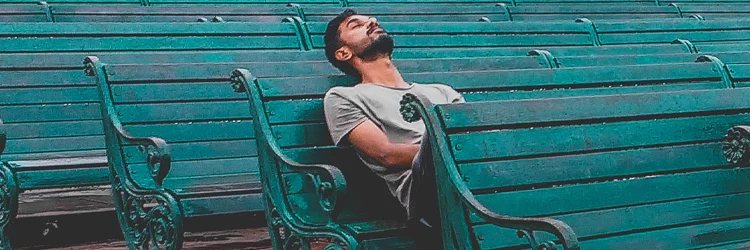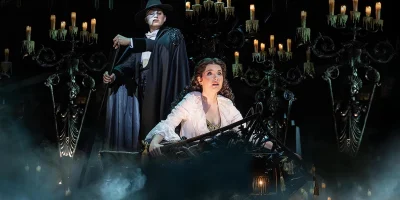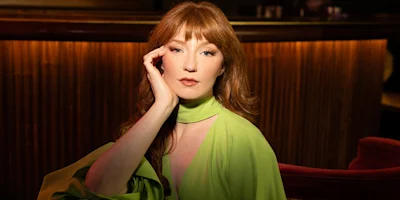
Is it ever okay to fall asleep at the theatre?
"To die, to sleep; to sleep, perchance to dream", declares Hamlet, in anticipation of the prospect of death, in probably the single most famous speech in all of theatrical literature: To be, or not to be.
But for many regular theatregoers, the speech could be rewritten as "to sleep, or not to sleep, that is the question." As my former critical colleague Matt Trueman (who has now hung up his pen to become a creative associate at Sonia Friedman Productions instead) once wrote in the Guardian, "Go on, admit it. You've fallen asleep in the theatre, haven't you? We've all done it. What with the comfy velvet seats and the darkened auditorium, its all too easy to sleep (perchance to dream?) in the theatre, especially after a long day or a pre-show meal. When faced with an unengaging production, just maintaining consciousness can be a trial in itself." And he admitted, "I've resorted to digging fingernails into my palms and contorting toes inside my shoes to stave off slumber."
Of course paying members of the public have bought the right to sleep, if they so choose, when they go to the theatre, although common rules of courtesy should, of course, also always apply. If you fall asleep, you should definitely not allow your head to slump onto the shoulder of the stranger sitting next to you, or worse, snore loudly and disrupt the performance for others trying to enjoy it. (I once had to shake the leg of a man seated behind me at the National and another time to grab the neck of the man in front of me at the Royal Court when they were snoring loudly).
In an intimate auditorium, it's not just distracting for fellow audience members (especially at a place like Richmond's Orange Tree, Donmar Warehouse, or Trafalgar Studios Two, where you can see just who is nodding off on the sides of the auditorium), but also for the actors. I was once at a performance at the Park Theatre in North London where Maureen Lipman was being visibly distracted by the slumbering head falls of a woman in the front row; at the curtain call, she marched over to her and admonished her personally with a firm head shake.
But when critics fall asleep, it's an even more egregious breach of professional etiquette - not least because they're there as invited guests of the management, not paying customers, who are expecting in return a full and fair appraisal of their collective efforts to put on the show, not just the parts they were conscious for.
There was an almighty set-to a few years ago when a critic was observed fast asleep at a performance at the Old Vic - by the then-actor husband of the star of the show, namely James McAvoy when Anne-Marie Duff was starring in Cause Célèbre there. As Tim Walker, who at the time was the Telegraph's Mandrake columnist reported, McAvoy, with members of his party, angrily told the critic concerned after the show "that he could not see how he could possibly review a production that he would have been able to have glimpsed, at best, only fleetingly." Walker reported another theatregoer saying: "There was a right rumpus. McAvoy was absolutely furious. I had noticed earlier that the gentleman sitting beside the snorer had been repeatedly elbowing him, but, sadly, to no avail. The noise was deafening. He was clearly in a very deep sleep indeed, and, to be fair to the play, he had nodded off before it had even begun."
So at least it was not personal about the actors or quality of the show itself. But is sleeping, if properly recorded, a legitimate critical response? One of my favourite reviews for its bald honesty was once penned by Quentin Letts, then writing for the Daily Mail, of a production called The Hour We Knew Nothing of Each Other at the National in 2008, in which he mentioned to the appearance of a circus band - and added, "woke me up at 7.51pm - thank you".
It's different, of course, when a show actually invites you to sleep. Such was the case at the Barbican in 2011, when Duckie (the still ongoing gay club night who also do occasional forays into performance) took over the Pit for an immersive sleep-over show called Lullabye. Here, the distance between its ambition and execution was judged in failing to put some critics to sleep: as Kate Bassett, then critic for the Independent on Sunday, recorded in her review of her partner's horrified reaction: "At about 2am, my now bug-eyed beloved mumbled something about 'Should have been billed as sleep-deprivation torture' and staggered off to hail a taxi. I downed a large brandy in the foyer (supplied by charming all-night ushers) and tottered back to see if the resounding lone snorer had turned into a chorus."
That snorer, it turned out, was a fellow critic Charles Spencer who at the time was theatre critic for the Daily Telegraph, who reported on his terrible night with forensic embarrassment in his review. "The producer had told me that if I wasn't lulled into sleep during this second half of the show before they brought proceedings to an end at 1am, Duckie would have failed in its task. I stayed awake. At about 2am, I drifted off but that was when a dire night became downright humiliating. The woman lying in the bed next to me woke me up and told me I was snoring. I apologised, went back to sleep and she woke me up and told me I was snoring again. I said the company had provided earplugs and perhaps they would help. She said she was wearing the earplugs and was still being kept awake by my snores. I felt guilty and exhausted and drifted off and she woke me a third time. I tried to stay awake but eventually fell back into swinish slumber."
I pity Charlie for being told off for doing exactly what he was being invited to do, namely sleep. But most nights at the theatre I find people asleep, including by critics on press nights. These aren't always the old-timers you'd expect: one of the people I've seen slumbering more than once was one of the younger critics (young being, of course, a relative concept here), and when the Daily Mail's Ephraim Hardcastle ran an item naming him, he proudly even tweeted a link to it. Perhaps shamelessness is the best strategy when you succumb to slumber in the stalls.
Originally published on









